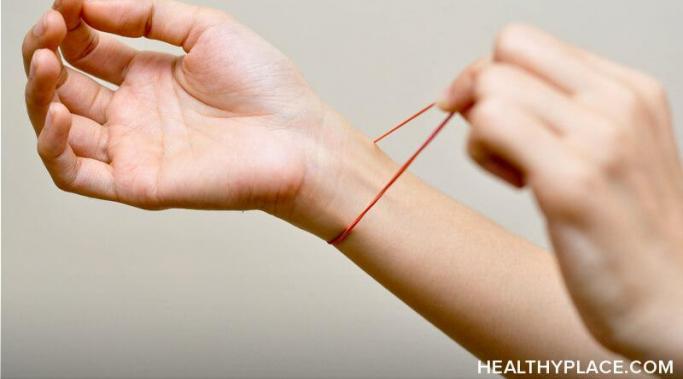Narcissism and self-harm may not seem like an obvious pair. After all, most narcissists think extremely highly of themselves, so engaging in self-injurious behaviors might seem like a counter-intuitive action. However, there is a form of narcissism where self-harm is more prominent, and some might even use it to manipulate their victim.
Self-Injury Awareness
It's easy to write off jewelry—of any kind—as a frivolous fashion statement, pretty but shallow. In the case of self-harm recovery jewelry, however, the meaning runs much deeper than that.
When we speak of self-injury, most people associate the term with inflicting physical wounds on oneself. However, self-harm goes beyond the surface of our skins, and it's more common than we might realize. Whenever we engage in negative self-talk or unconsciously set ourselves up for failure, these are signs of psychological self-harm. Here's how to recognize it.
Self-injury can affect anyone, regardless of age, ethnicity, or gender. However, recent studies suggest that female self-harm is soaring for reasons that include poverty, sexual abuse, cyberbullying, and unrealistic beauty standards. This International Women's Day, let's talk about why young women self-harm.
Self-Injury Awareness Month 2021 is upon us. March offers an excellent opportunity to educate ourselves and each other about self-harm—and if you're not sure what exactly you're supposed to do with this opportunity, here are a few ideas to spark your creativity.
Broaching a sensitive topic like self-injury can be daunting. On the one hand, talking about self-harm is often an important part of the healing process, but on the other hand, it can feel a bit like trekking across a field filled with landmines. If you're worried about how to talk about self-harm, here's what not to say—and a few suggestions for what to try instead.
One of the hardest things about caring for someone is that when that person hurts, you hurt. It's only natural to want to make the pain go away. But when you love a self-harming partner, things are rarely that simple.
Despite a seemingly simple definition, it can be difficult sometimes to draw the line between what does and does not qualify as a self-harm disorder. Excoriation, for example, involves purposely and repeatedly harming your own skin—but is skin picking really self-harm?
The holiday season is a complicated time of year, one that tends to bring out both the best and worst in us. For some, it is simply a time to celebrate and give thanks, but when you're stuck in the shadow of self-harm with depression, lights strung on trees might not seem bright enough to outshine the darkness of long, cold, winter nights.
Finding out that someone you love has a secret is always shocking, but few secrets are as devastating as self-harm. Helping a self-harming friend open up about his or her struggle may be beneficial for you both, but how do you tackle such a sensitive subject without damaging your relationship?









